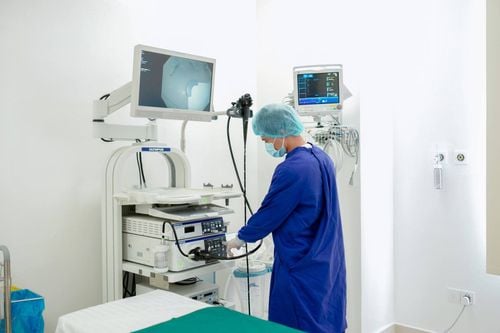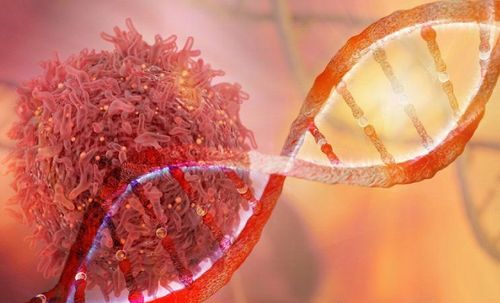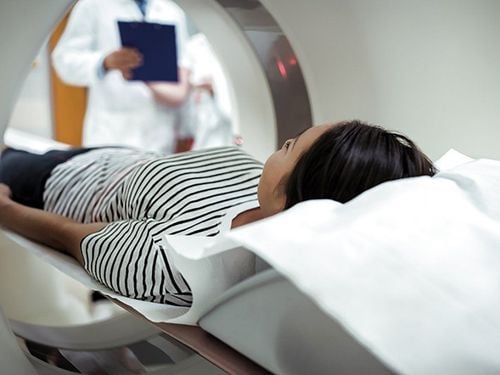This is an automatically translated article.
The appearance of mutated genes that change the division and replacement process is the basis for cancer cells. The BRAF NRAS mutation test is considered a turning point in diagnosis as well as helping doctors decide on the right treatment plan for the patient.
1. Importance of BRAF NRA . mutation testing
Normally, cells in the body grow, divide and replace dead cells according to the natural process. However, due to the appearance of genetic mutations, cells begin to divide abnormally and grow out of control, thereby forming tumors.
Tumors can be benign (non-cancerous) or malignant (cancerous). As for benign tumors, they are unlikely to invade other surrounding tissues. But with melanoma, it is constantly growing and moving to other parts of the body, also known as metastatic cancer.
The BRAF NRAS mutation test is evaluated as a great advancement of medicine in the diagnosis and selection of cancer treatments such as: colorectal cancer or liver cancer test ...
2. Biomarker in the BRAF NRA . mutation test
Biomarkers (tumor markers) are molecules or genes found in the body. In cancer patients, biomarkers can emerge from tumors or because other tissues in the body respond to the presence of tumors.
There are many biomarkers used to help doctors make treatment decisions for many inherited cancers. Especially for patients with colorectal cancer, BRAF NRAS mutation tests are important predictive biomarkers to help doctors make the right decisions in choosing treatment methods. for patients.
There are 2 different types of RAS genes that are commonly tested by doctors for colorectal cancer patients, KRAS and NRAS. Of these, about 50% of colorectal tumors will have mutations in the RAS genes (called RAS mutants) and 50% of tumors have native RAS genes.
When doctors make the decision to combine chemotherapy with targeted drugs for patients with advanced cancer, it is often based on the status of the natural or mutated RAS gene.

Xét nghiệm đột biến BRAF NRAS được đánh giá là những tiến bộ vượt bậc của y học trong chẩn đoán
3. What therapies are used after BRAF NRA mutation test results are determined?
In the case of patients whose cancer cells are naturally occurring RAS, treatment with anti-epithelial growth factor receptor (EGFR) therapies such as Cetuximab (Erbitux) and Panitumumab (Vectibix) may be beneficial. Because this interaction will stop the growth and division of cancer cells, thereby preventing these cells from growing and metastasizing.
For patients with mutant RAS who will not respond to anti-epidermal growth factor receptor therapy because EGFR signals cannot be turned off. As a result, cancer cells will continue to proliferate and grow.
For patients with mutant RAS, anti-vascular endothelial growth factor (VEGF) treatments such as Bevacizumab (Avastin) are more effective. The main feature of these treatments is to prevent the formation of new blood vessels as well as cut off the blood supply to the tumor so that it is limited or not growing.
In conclusion, the BRAF NRA mutation test is very important in the diagnosis and support of cancer treatment, so this test should be performed at reputable medical facilities for accurate results.
Currently, the Laboratory - Vinmec International General Hospital is one of the leading prestigious addresses in the country, trusted by a large number of patients for medical examination and treatment. Thanks to the use of modern machines and equipment for examination, it has provided accurate information, helping doctors to assess the overall health status of the tested people, early detect diseases and propose recommendations. provide a timely treatment plan. In particular, with a space designed according to 5-star hotel standards, Vinmec guarantees to bring patients the most comfort, friendliness and peace of mind when visiting and receiving treatment at the hospital.
Please dial HOTLINE for more information or register for an appointment HERE. Download MyVinmec app to make appointments faster and to manage your bookings easily.













